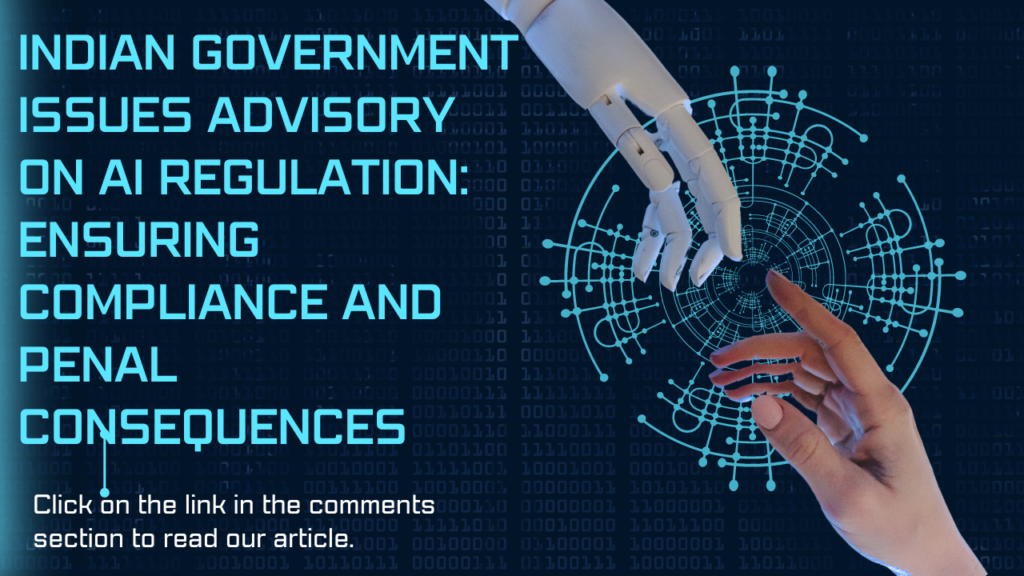Introduction
The Ministry of Electronics and Information Technology has recently issued an advisory on March 1st aimed at regulating the use of Artificial Intelligence (AI) technology in India. This directive comes in response to the controversy surrounding Google’s Gemini model and its response to queries related to Prime Minister Narendra Modi. Through the AI regulation, the government seeks to ensure transparency and accountability in the deployment of AI, particularly concerning concerns about unlawful content and misinformation on digital platforms.
Regulatory Requirements: Key Guidelines for Enforcing AI Regulations
The government’s advisory lays out specific regulatory requirements for digital platforms and intermediaries regarding the use of AI technology. These requirements include:
- Preventing Unlawful Content: Platforms must ensure that AI models, software, and algorithms do not host, display, upload, modify, publish, transmit, store, update, or share any unlawful content as outlined in Rule 3(1)(b) of the IT Rules or violate any other provision of the IT Act.
- Integrity of Digital Processes: Platforms must take measures to prevent bias, discrimination, or threats to the integrity of digital processes, including the electoral process, through the use of computer resources.
- Transparent Use of AI Models: Platforms must obtain explicit permission from the Government of India to use under-testing or unreliable AI models, label their fallibility, and inform users explicitly through a ‘consent popup’ mechanism.
- Informing Users about Consequences of Dealing with Unlawful Information: Platforms must clearly inform users about the consequences of dealing with unlawful information, including disabling access to or removal of non-compliant information, suspension, termination of access or usage rights of the user to their user account, as the case may be, and punishment under applicable law.
Consequences of Non-Compliance
Non-compliance with the directives outlined by the Ministry may result in severe penal consequences for intermediaries, platforms, or their users. These consequences include but are not limited to prosecution under the IT Act and other statutes of the criminal code. Intermediaries are urged to ensure compliance with the advisory and to submit an Action Taken-cum-Status Report to the Ministry within 15 days.
Conclusion
In conclusion, the government’s advisory on AI regulation underscores its commitment to fostering a responsible and accountable digital ecosystem in India. By setting clear regulatory requirements and outlining the potential consequences of non-compliance, the Ministry aims to address concerns surrounding AI deployment and mitigate the spread of unlawful content and misinformation on digital platforms.
Useful links
Read our article titled, ‘Fintech Laws In India: Understanding The Regulatory Regime‘ and ‘How To Be Compliant With Data Protection & Privacy Laws In India‘ published on Mondaq. Head over to the section on ‘Data Privacy & Protection‘ to read articles on the subject.
Corrida Legal is the preferred corporate law firm in Gurgaon (Delhi NCR) and Mumbai. Reach out to us on LinkedIn or contact us at contact@corridalegal.com/+91-8826680614 in case you require any legal assistance.



